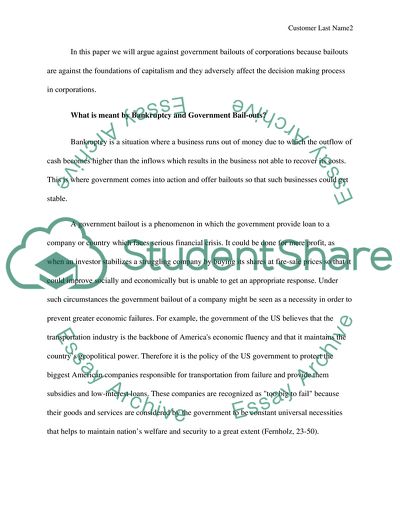Cite this document
(Should the US Government Stop Corporation Bailouts Research Paper - 1, n.d.)
Should the US Government Stop Corporation Bailouts Research Paper - 1. Retrieved from https://studentshare.org/politics/1777630-research-paper
Should the US Government Stop Corporation Bailouts Research Paper - 1. Retrieved from https://studentshare.org/politics/1777630-research-paper
(Should the US Government Stop Corporation Bailouts Research Paper - 1)
Should the US Government Stop Corporation Bailouts Research Paper - 1. https://studentshare.org/politics/1777630-research-paper.
Should the US Government Stop Corporation Bailouts Research Paper - 1. https://studentshare.org/politics/1777630-research-paper.
“Should the US Government Stop Corporation Bailouts Research Paper - 1”, n.d. https://studentshare.org/politics/1777630-research-paper.


